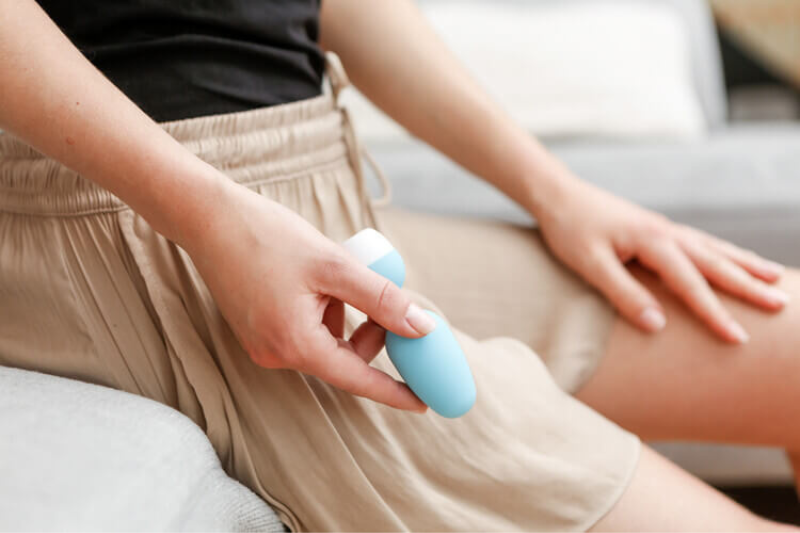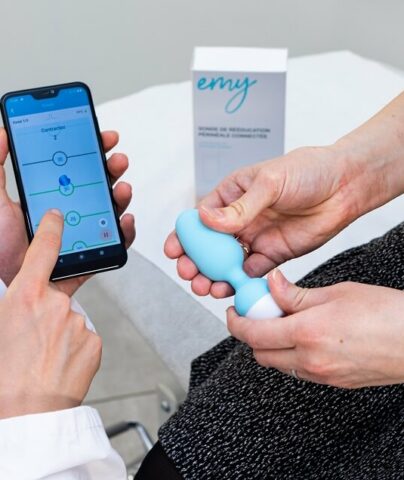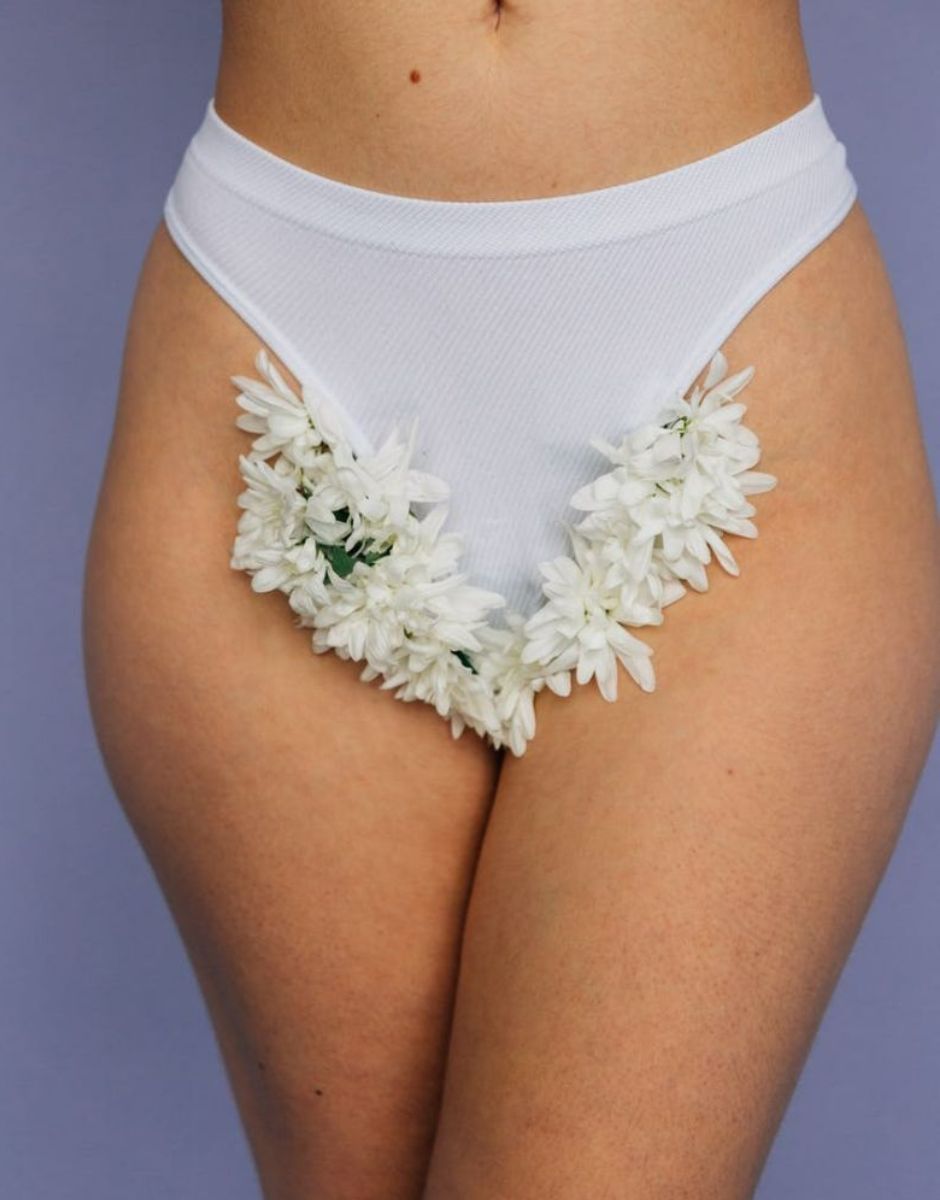
Incontinence at Menaupause? You can beat it!
The arrival of menopause is often synonymous with urinary leaks for many women. How to treat them and prevent incontinence at menopause? One thing is certain, there is nothing irreparable about urinary incontinence, and solutions exist to remedy it!
Why do women have urinary leaks at menopause?
At menopause, the body goes through a lot of changes. This period is not limited to episodes of mood swings or joint pain. In women, it generates major changes that need to be understood.
You may also experience a decrease in your libido, hot flashes, or even vaginal dryness. And, the cherry on the cake, a few drops of urine in your underwear when you laugh or sneeze.
With age and the hormonal decline of pre-menopause and menopause, tissues tend to relax. This includes the pelvic floor. This is how urinary leaks can occur.
Also note that there are different types of urinary incontinence. The most common at menopause are:
Stress Urinary Incontinence: Urinary leaks during a physical activity like running jumping, lifting heavy loads
Hyperactive bladder: Urgent nd incontrollable need to urinate.
However, not all women experience the same issues. Some will go through this menopausal stage without any problems.

Free Pelvic floor guide
Find out how to strengthen your pelvic floor to prevent bladder weakness and improve intimate pleasure! 💥
Urinary incontinence and menopause: key figures
One of the main causes of urinary leaks is the weakness of the pelvic floor, especially during and after menopause.
According to the US Dept of health and Human Service, just in the US , around 3,3 million women suffer from problems related to the pelvic floor. This can range from light urinary incontinence to Pelvic Organ porlapse prolapse.
But one figure to remember, which will help you put things into perspective if you have pelvic problems, is that 1 out of 3 women suffers from stress urinary incontinence between 55 and 60 years old. So, ladies, don’t panic, you are not alone!
Do kegels for your pelvic floor
How to recognize the first signs of urinary incontinence at menopause?
During menopause, you will experience a drop in your estrogen levels. This decrease will, among other things, cause a loss of elasticity in the urinary tract. As a result, you may start to experience leaks. Patients often notice this during a good laugh, while exercising, or when sneezing.
Of course, this discovery is rather unpleasant. If you don’t pay attention to it, these “small accidents” can turn into “big problems”. But in reality, it simply means that your pelvic floor needs exercise, nothing more.
Furthermore, apart from the mechanical aspect, urinary leaks sometimes come with a loss of self-confidence. The patient is then less inclined to exercise, go out, dance, laugh… And one thing is certain, hygiene protections will not be enough to solve the problem.
Overall, it is important to keep one thing in mind. If you don’t work on all the muscles of the pelvic floor, leaks may become more and more significant. Worse, you could even develop organ prolapse (rectocele or cystocele).

How to treat urinary incontinence during menopause?
On television, many commercials praise the effectiveness of special hygiene protections for absorbing urinary leaks… Let’s just say that at Fizimed, this kind of “ad” rubs us the wrong way a bit.
Indeed, the message sent to women, regardless of their age, is unequivocal:
“Yes, ladies, you will have urinary leaks, and this will continue for the rest of your life”.
For decades, we have been told that Incontience at menopause is something we just have to live with and use their ‘ pads’ to keep ourselves dry. Well, now we know that is indeed FALSEE! There are solutions that fix the problem within a few weeks.
How do I treat incontinence after 50 years of age?
There are many alternatives to sanitary pads for women suffering from urinary leaks. These solutions can even address an incontinence issue if it is indeed due to a pelvic floor dysfunction.
So, here’s what to do if you notice urinary leaks when menopause arrives:
- Make an appointment with your gynecologist who will prescribe sessions with a healthcare professional (midwife or physiotherapist). Sometimes, a slight hormonal treatment may also be recommended to better manage the situation.
- Find the pelvic floor rehabilitation method that suits you best. Manual, electrostimulation, or biofeedback, with or without a devuce… The most important thing is that you feel comfortable and confident in carrying out these sessions.
- Continue your pelvic floor self-training at home after your sessions with a professional. There are effective devices to continue working on your pelvic floor at home. You can also do Pilates or yoga. In short, find the best way to continue training your pelvic floor to NEVER have urine leaks again.
It’s never too late to tone your pelvic floor!
Menopause is the perfect time to start taking care of yourself, especially your pelvic floor that you may have neglected. It’s never too late… or too early: take advantage of perimenopause to prevent these discomforts!
At the first symptoms, take action! Regularly practicing exercises to tone your pelvic floor, like Kegel exercises, is truly beneficial. If you diligently strengthen your pelvic floor, it will then maintain its firmness and elasticity.
By regularly maintaining your pelvic floor and abdominal muscles, you will strengthen them and thus avoid episodes of urinary incontinence. Taking care of your pelvic floor will promote a good quality of life (without urinary leaks) and a fulfilling sexuality. All while preventing prolapse and the need for a sling placement.
Adapting your lifestyle for a better menopause experience
Finally, here are a few last tips to follow for a good menopause experience and to preserve your pelvic floor.
A healthy diet
Firstly, favor foods rich in nutrients, especially proteins. And limit sugars to avoid weight gain, which menopause often accentuates.
It is important to remember that significant weight gain can be an aggravating factor for stress urinary incontinence.

Regular Physical Activity
To stay in shape, also remember to move as often as possible. Regularly engage in physical activity while preserving your perineum. In this perspective, prioritize low-impact sports. Being both confident and calm, you will feel better in your own skin.
Specific Pelvic floor Exercises
Finally, exercise your pelvic floor daily with dedicated strengthening exercises. Whether it’s Pilates, the De Gasquet method, Kegel exercises or others… Choose the exercises that best suit you to strengthen and maintain your pelvic muscles.

For a menopause without urinary leaks, take the time to care for your pelvic floor. It’s an opportunity to boost yourself and regain a second youth. Another benefit: your back will thank you!
Do kegels for your pelvic floor

Free Pelvic floor guide
Find out how to strengthen your pelvic floor to prevent bladder weakness and improve intimate pleasure! 💥





